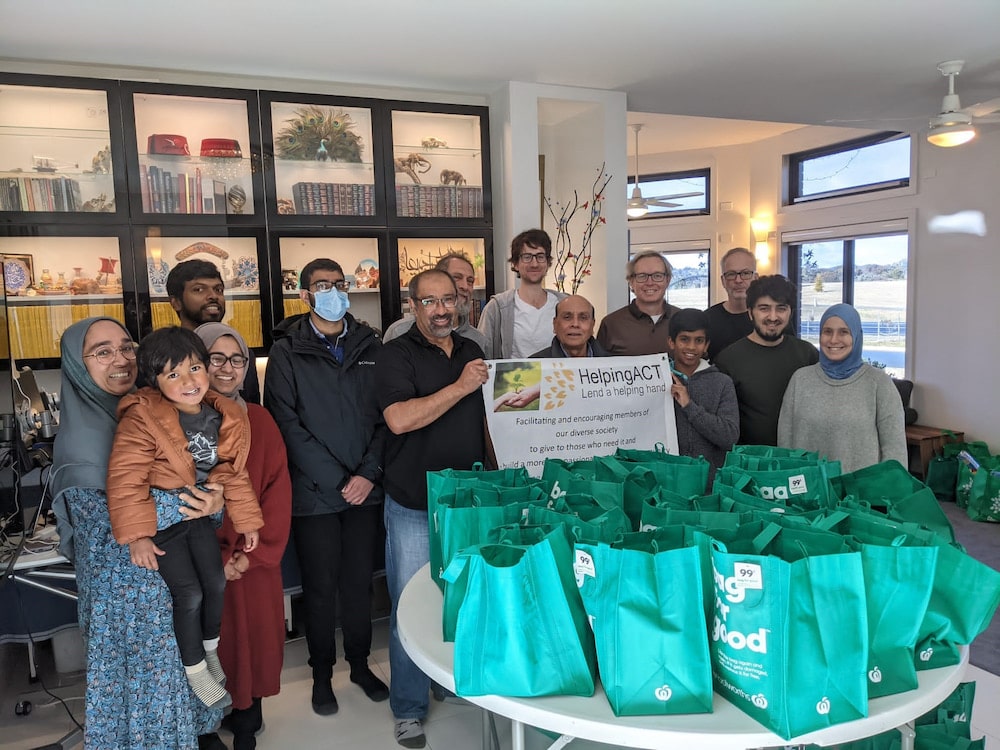Local charity HelpingACT believes that nobody should sleep hungry in Canberra – and refugee and asylum seekers will sleep a little better this week. To celebrate the Islamic holy day of Eid al-Adha today, Helping ACT volunteers packed 40 food hampers on Saturday, which they distributed to families on Sunday.
Mohammed Ali, a retired biochemist and former Multicultural Volunteer of the Year, founded HelpingACT three years ago to provide food security to the vulnerable: refugees and asylum seekers, homeless people, international students, and anyone else in need.
Although Mr Ali is Muslim, born in Pakistan, other members are ‘true-blue Aussies’ (many former colleagues from the Therapeutic Goods Administration), Muslims, or Hindus.
“HelpingACT does not discriminate against any person because of religion or race, or any other thing,” Mr Ali said. “Need doesn’t know any religion; need doesn’t know which family you belong to; what your background is. Let’s keep the flame alive, the flame of love and care for all – particularly those people who are in need.”
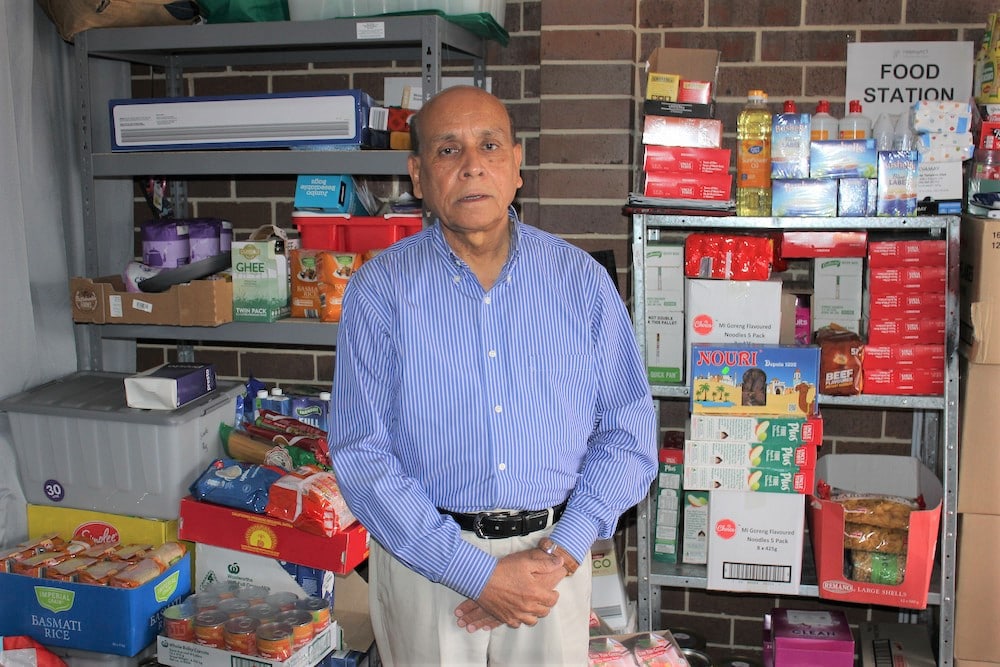
Celebrated on the last day of the Hajj pilgrimage, Eid al-Adha – the Festival of Sacrifice, the second holiest day in Islam – marks Ibrahim’s willingness to sacrifice his son to God – who substituted a sheep instead. Traditionally, Muslims distribute lamb to the poor and needy (keeping only a third for themselves). Besides the hampers, HelpingACT will deliver meat to 35 Muslim families and to a dozen people in the general population.
“Eid Al Adha reminds us to sacrifice our most loved valuables, our desires, and our belongings,” Mr Ali wrote on Facebook. “It strongly reminds us to care for those in need.”
Mr Ali – a twinkling, genial man – needs no reminder to care for those in need, whatever the season. Although retired, he tirelessly spends four out of five days working with HelpingACT.
A sample two days might see him delivering food to Woden Community Service for CALD [culturally and linguistically diverse] clients and to Companion House for refugees and asylum seekers, and food and household utilities to University of Canberra’s student food pantry; contributing to OzHarvest’s school breakfast program; and discussing housing for refugees and asylum seekers with former Greens MLA Caroline Le Couteur.
HelpingACT also helps Havelock House to stock its food pantry, and brings breakfast to homeless people for the Uniting Church’s Early Morning Centre. At Christmas, the charity packs 220 food hampers for homeless people, and distributes children’s toys both at Christmas (through the Smith Family) and Eid al-Fitr. Through the Multicultural Hub, it gives food, white goods, and furniture to refugees and asylum seekers, and helps them pay bills. It also brings food and groceries to families who can’t go out for themselves, whether because they are disabled, have small children, or don’t have transport.
“There is a great sense of satisfaction [in helping people],” Mr Ali said. “If you can simply change one life, you’ve done a lot.”
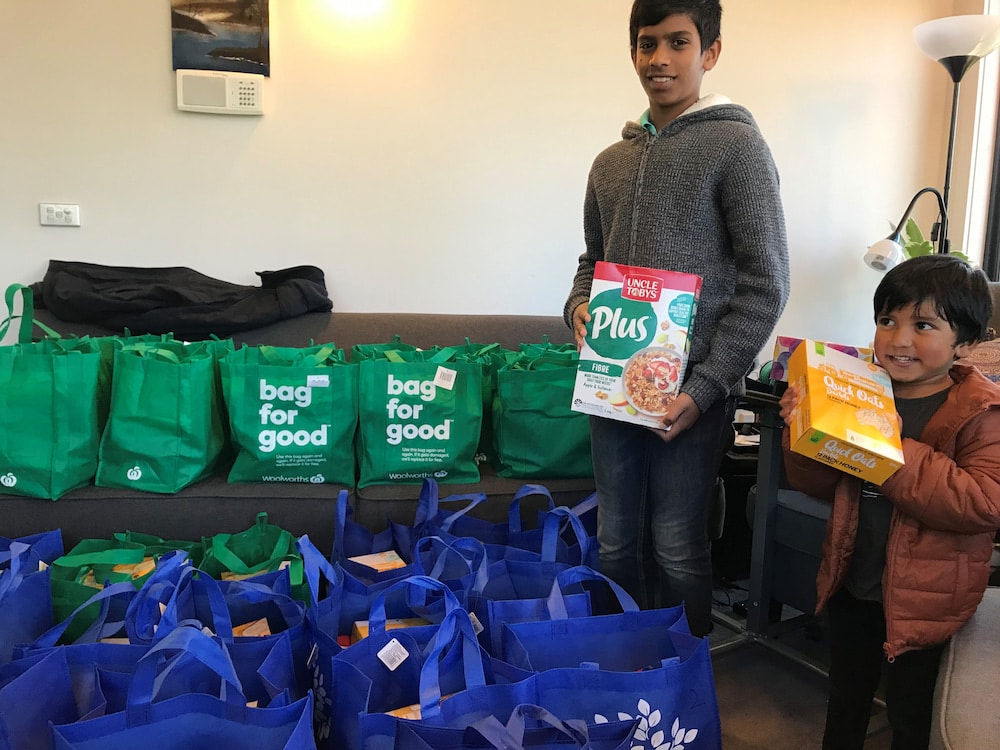
During the 2019/2020 bushfires, HelpingACT partnered with Slabs for Heroes to donate goods to fire-affected areas, and prepared meals for fire evacuees camped at Erindale and Dickson College. Mr Ali intends to broaden the charity’s reach to the region surrounding the ACT.
Last year, HelpingACT donated $24,000 worth of food for vulnerable people. Charities’ food needs quadrupled when COVID hit; 25 families landed in Canberra just before COVID started, Canberrans lost their jobs, and international students were left stranded.
One Bangladeshi student wanted to give back to the charity, which helped her for six months. When she found a job, she made a donation. “Now I’m in a position to help through you others like me,” she told Mr Ali.
The charity holds three fundraising drives a year – winter, the month of Ramadan, and Christmas. Others donate money online – or leave $50 notes in envelopes on Mr Ali’s doorstep.
Canberrans are extremely generous, Mr Ali said. “We were completely empty-handed when we started HelpingACT, but never ever has come any day when we have felt: OK, we want to do this; where will the money come from?”
HelpingACT received their first ACT grant this year, which they will use to hold computer classes for youths and seniors, and facilitate counsellors for people with psychological issues.
If you know any family who needs help (long-life food or groceries, or white goods, furniture, settling in) or want to donate to HelpingACT, call Mohammed Ali on 0404 947 260, email [email protected], or online via www.helpingact.org.
Mohammed Ali: “We have to help”
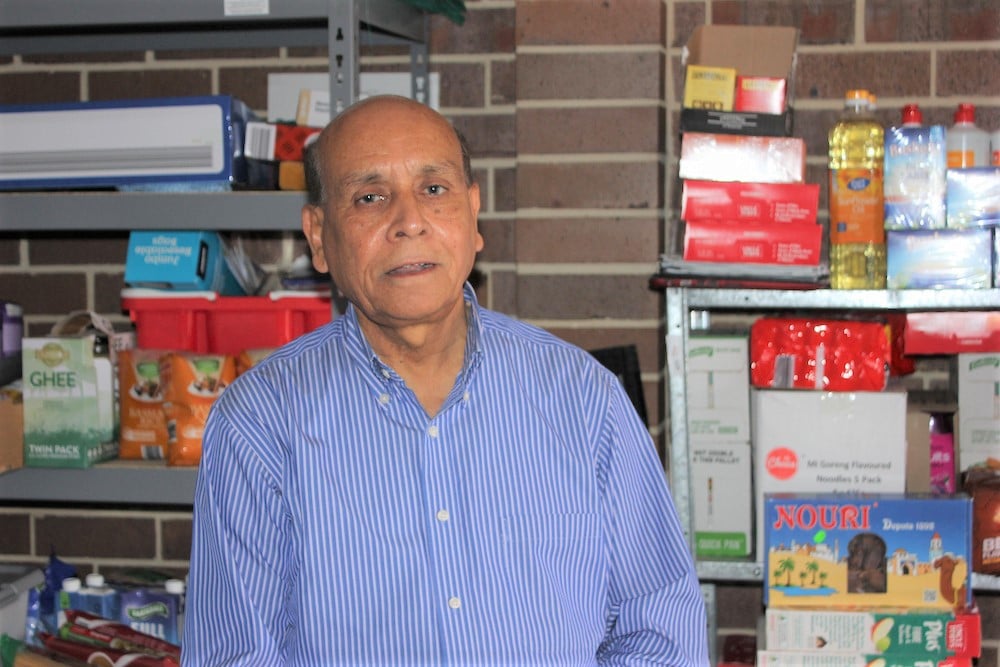
Mr Ali says his desire to help people came from seeing life very closely.
He was one of seven siblings from a humble Pakistani family; study and hard work gave him a better life. His father, a clerk, told him not to worry how many hours he (the father) worked, but simply to study hard.
Mr Ali took that advice; he was a gold medallist in biochemistry at Karachi University, topped his course in Honours and in Masters, and was immediately offered a teaching position. But as well as a good mind, he also had a good heart.
He saw poverty up close both in Pakistan and in Nigeria (where he taught for three years) – families whose ego and self-respect would not allow them to seek help, children begging for food.
“I had a dream that when I went to Australia, I wouldn’t see these problems – but here also you see struggling families and homeless people.” At Civic and Dickson every night, he said, you will find people sleeping rough. “These people need food – it’s a basic human right.”
Mr Ali said he could expect that kind of problem in developing countries – but he could not understand why homelessness and poverty existed in Australia’s most affluent city.
“I thought that we have to help.”
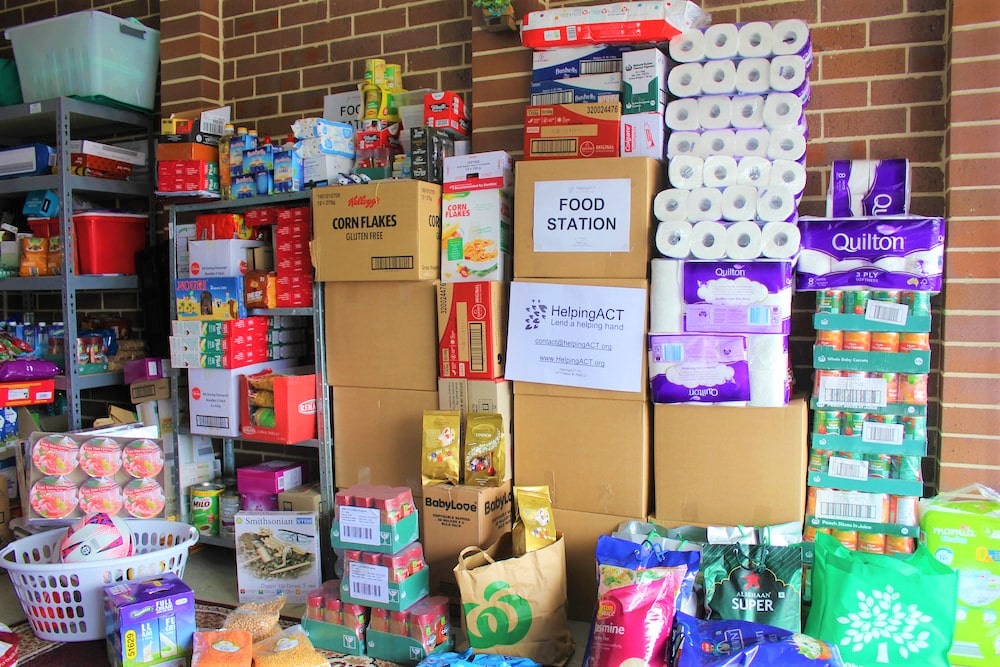
The plight of refugees and asylum seekers was another driver for setting up HelpingACT. Although Australia was a haven, many faced problems in settlement.
“Those people who come here have heavy baggage on their minds,” Mr Ali said. “They have left their country, they have left all their roots there, and the uncertainties of the future are killing them.”
Mr Ali came to Canberra in 1991, and worked for the TGA for two decades. The Indian Ocean tsunami of 2004 was a turning point, Mr Ali remembered.
“We were just a family sitting, looking at the devastation on television – people drowning and left with nothing in their lives.”
Determined to help, Mr Ali and colleagues held the TGA ‘Curry Lunch’, which raised $3,000 for the Red Cross. The event became an annual fixture; over the next decade, home-cooked meals raised money for Vinnies, Uniting Care, or the Smith Family. He raised more money for charity through morning teas and chocolate – a tradition that he is delighted still continues.
Mr Ali also sits on the board of Companion House; the ACT Refugee, Asylum Seeker and Humanitarian (RASH) Coordination Committee; and the ACT Government’s Multicultural Advisory Council.
Fifteen years ago, Mr Ali established Forum Australia, a thrice-yearly event on issues that concern Australians, such as climate change, COVID-19, and mental health; speakers include politicians, academics, advocates, subject experts, and journalists.
“Up on the Hill or in the ACT Assembly, sometimes there is a feeling that grassroots feelings may not be delivered there,” he said. “At least through this, we are able to contribute to the thought process of movers and shakers in Australian politics.”
The world would be a kinder place if there were more people like Mohammed Ali.
For more news:

